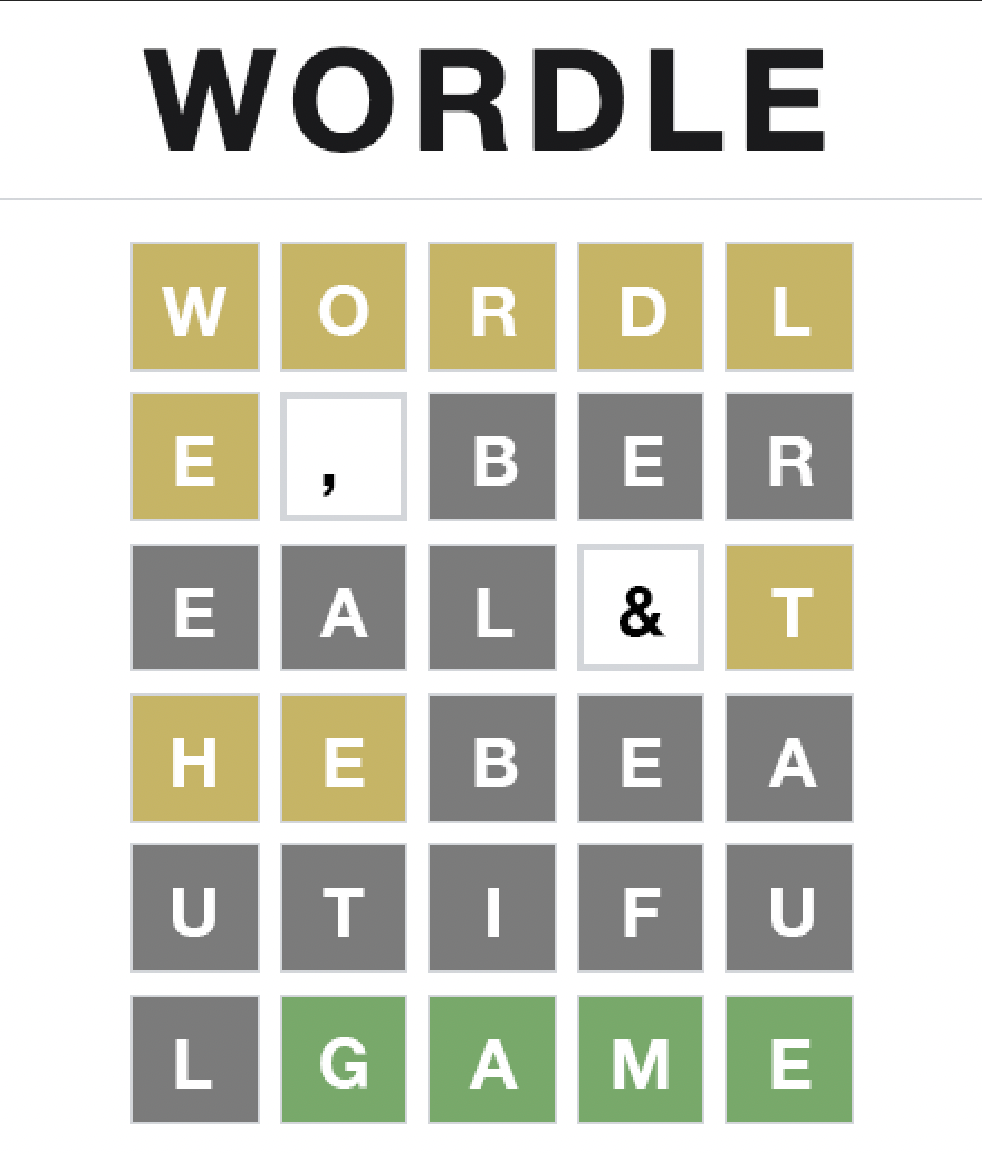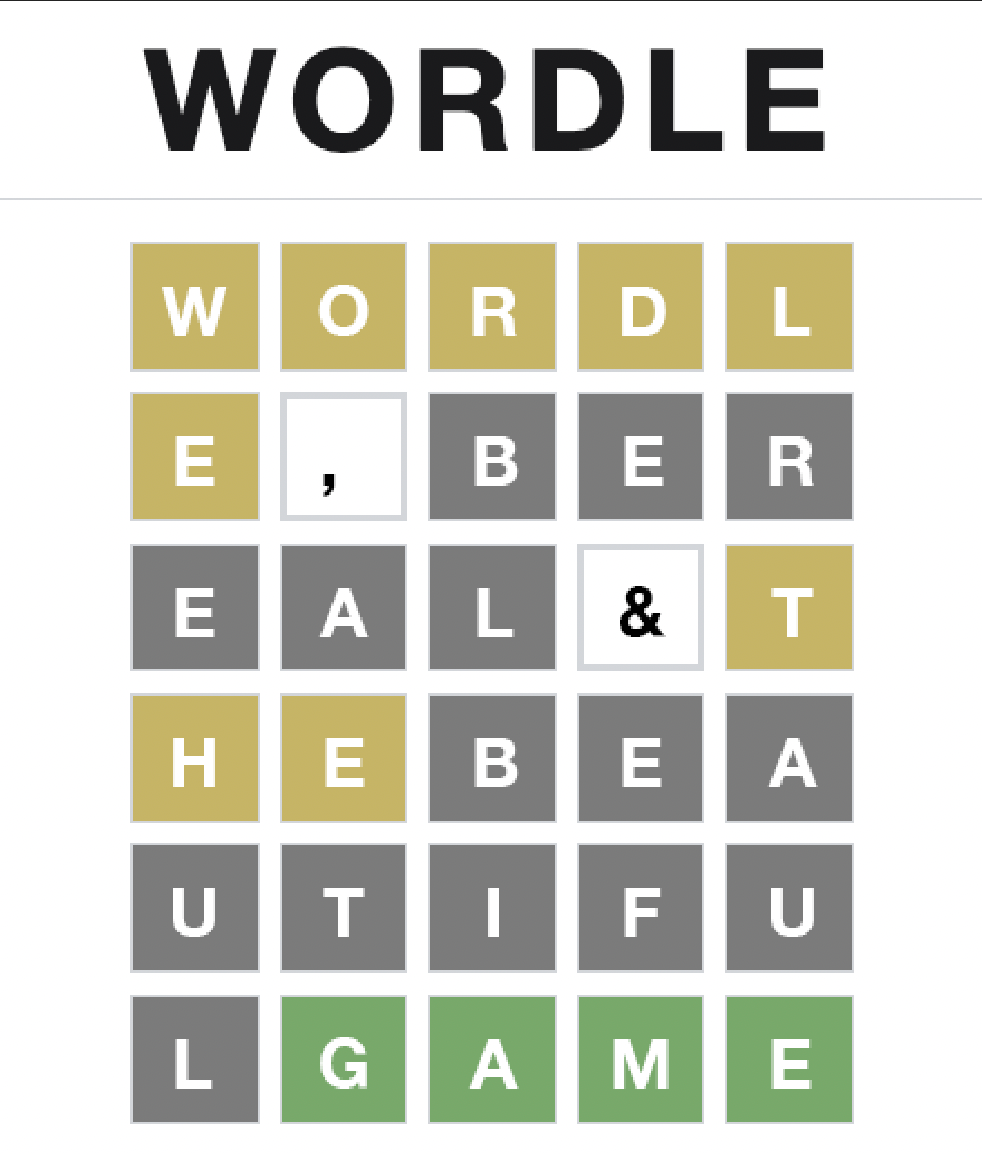Wordle, BeReal and The Beautiful Game
Simplicity is in style these days. We’re decluttering our online lives with apps like BeReal and games like Wordle. If you want to simplify your sports-watching life, you should be watching soccer, argues Leo Kamin '25.


2022 seems set to be the Year of Simplicity for our generation. Over the last couple months, we — who have never known anything other than digital abundance — seem to have slowly realized that scarcity might be better. Wordle has become a sensation not because it is the most enjoyable game to play, but because we can only play it a tantalizing single time a day. The French app BeReal has swept college campuses, hooking many on its promise of a less constant, less curated social media. Many people are flirting with a switch back to the flip phone — celebrities like University of Georgia quarterback Stetson Bennett IV and comedian Aziz Ansari have already pulled the trigger. After a few years of Airpod dominance, wired headphones are apparently now a fashion trend. Some of this is certainly just an aesthetic trend, but there does seem to be substance to our digital decluttering: we have discovered that even in the age of Big Tech, we are the owners of our own attention spans.
If you’re a sports fan who finds yourself drawn to any of these phenomena, chasing distilled and delayed dopamine hits over constant, shallow ones, I have another recommendation for you: start watching soccer.
I have long been and continue to be a big fan of American sports, but in recent years, I’ve found myself drawn more and more to the world of European soccer. I’m not alone. Soccer recently passed hockey to become the fourth-most popular sport to watch in the nation. With the World Cup coming to North America in 2026, it seems it won’t be long before it overtakes baseball — our “national pastime” — in third. I believe its increasing appeal is altogether not that different from the force that has drawn so many to Wordle and BeReal.
American sports are often the opposite of scarce. There are 162 games in an MLB season and 82 in the NBA and NHL, all compressed into a less-than-six-month period (this is not counting the playoffs). In the English Premier League, on the other hand, there are just 38 games and no postseason. Teams in the major European soccer leagues play just once, and on rare occasions, twice a week. (Though it may appear that the NFL has fewer games, with just 16, the season is much shorter, meaning the frequency is almost identical to that of the Premier League.)
On top of this, it is not only the number of games that matters, but the content of those games. For instance, an NFL team will typically score somewhere around five times per game, MLB teams often more than that, and NBA teams far more than that. The typical soccer game, on the other hand, sees something more like two to four goals.
This has often been the central American criticism of the game: not enough scoring. But that is like saying that BeReal does not allow enough posting. With so many fewer game-altering events, each shot, save, block, and cross is infused with so much more emotional weight. The excitement that comes from watching your Premier League team break a deadlock or score an equalizer is akin to the rush of a game-winner in basketball. Except that the average basketball team will have maybe one or two game-winners all season.
And I haven’t even mentioned the commercials. American sporting events have a commercial break every few minutes; the two 45-minute halves of a soccer game, though, are broadcast in their entirety without interruption. Soccer is very much a flip phone in a world of iPhones.
Understandably, though, many American fans have a hard time becoming invested in European soccer. This is often because they have no hometown team. But, in a sense, this is kind of freeing. Despondent New York Jets and Sacramento Kings fans, for instance, can get a taste of greatness by casting their lots with European giants like Manchester City or Paris Saint-Germain. Fandom is in the end an act of habit, not some kind of birthright. Repeated watching builds familiarity. When you invest your time, you start to root for some emotional return, in the form of wins and trophies. The big European soccer teams already have massive fan bases stretching to all corners of the world — they welcome newcomers.
Some good things are more good when they happen less often. I was reminded of this this past Saturday. I woke up and immediately completed the Wordle. My Premier League team, Liverpool, entered the morning in desperate need of a win and hoping that the league leaders, Manchester City, would lose. We went down by a goal at the start of the second half. When we equalized with a spectacular bicycle kick, I screamed. When we took the lead off an assist from our goalkeeper, I screamed louder. When, a few hours later, Tottenham Hotspur scored in the 98th minute (eight minutes after the game was supposed to end) to beat Man City, I couldn’t help but interrupt the meeting I was in. After each major goal, I exchanged a rush of all-caps texts with friends and family members. Only a few times in my life have I responded to a 3-pointer or touchdown with the same ferocity. With soccer, it seems to happen just about every week.




Comments ()